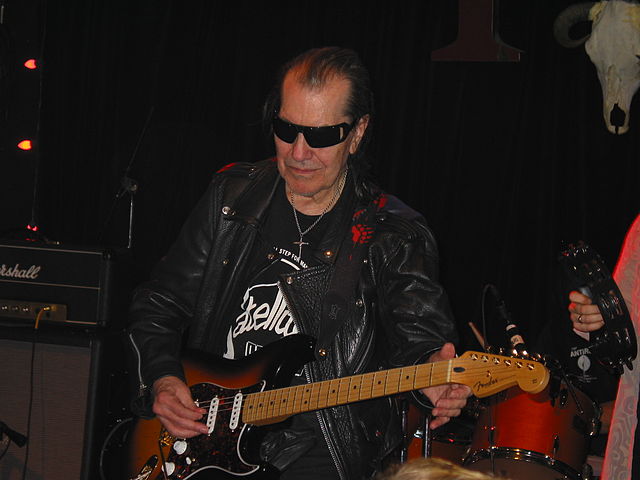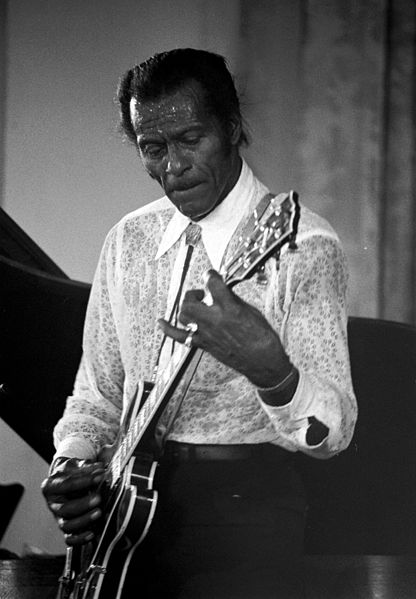Fred Lincoln "Link" Wray Jr. was an American guitarist, songwriter, and vocalist who became popular in the late 1950s. His 1958 instrumental single "Rumble", reached the top 20 in the United States; and was one of the earliest songs in rock music to utilize distortion and tremolo.
Wray performing in July 2005
Link Wray's grave
Distortion and overdrive are forms of audio signal processing used to alter the sound of amplified electric musical instruments, usually by increasing their gain, producing a "fuzzy", "growling", or "gritty" tone. Distortion is most commonly used with the electric guitar, but may also be used with other electric instruments such as electric bass, electric piano, synthesizer and Hammond organ. Guitarists playing electric blues originally obtained an overdriven sound by turning up their vacuum tube-powered guitar amplifiers to high volumes, which caused the signal to distort. While overdriven tube amps are still used to obtain overdrive, especially in genres like blues and rockabilly, a number of other ways to produce distortion have been developed since the 1960s, such as distortion effect pedals. The growling tone of a distorted electric guitar is a key part of many genres, including blues and many rock music genres, notably hard rock, punk rock, hardcore punk, acid rock, and heavy metal music, while the use of distorted bass has been essential in a genre of hip hop music and alternative hip hop known as "SoundCloud rap".

The DS-1 was the first ever distortion guitar effect pedal manufactured by Boss
The guitar solo on Chuck Berry's 1955 single "Maybellene" features "warm" overtone distortion produced by an inexpensive valve (tube) amplifier.
Big Muff fuzzboxes: a NYC re-issue (L) and a Russian Sovtek version (R)
The Boss BD-2 Blues Driver






